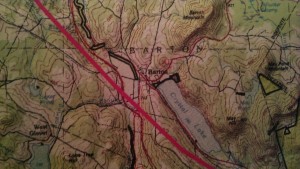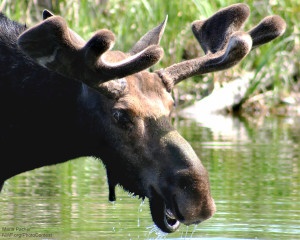We have much more to do and your continued support is needed now more than ever.
Vermont Towns Protect Wildlife and Vote ‘No’ on Tar Sands

The Northeast Kingdom speaks up
Perhaps the most telling part of this news is where the towns are: The majority of towns who considered and passed these resolutions are in the Northeast Kingdom, some of them crossed by the 60-year-old pipeline itself.
The towns who passed tar sands free resolutions include Albany, Barton, Charleston, Glover, Hartland, Jay, Richmond, Shelburne, Stannard, Strafford, Sutton, Westmore and Wheelock.
To date, 42 Vermont towns have called on our leaders to stand up for the state’s waters, wildlife, farms, and future against tar sands transport—making Vermont a leader in the fight to keep tar sands out of our state and the Portland-Montreal pipeline, a fight in which we are joined by New Hampshire and Maine.
Direct democracy, discussion among neighbors
Sutton, where the pumping station for the pipeline in Vermont is located, passed the resolution after some discussion.
David Tucker spoke in favor, and said the conversation among neighbors was helpful. “Sutton voters don’t want to be overlooked,” he said. “Our town’s natural beauty is valuable to us, and we don’t want even the possibility of an environmental accident here to be ignored just because we are such a small town.
“The people I talked with wanted to make sure that we raised our voices so that our town is recognized as our home, and not just an irrelevant place on the map,” he added.
Towns cited the threat that would be posed by a spill of the substance, which behaves differently than conventional crude oil when it spills into water, and is extremely costly and difficult to clean up. Residents in several towns spent the winter gathering signatures to get the resolution officially warned for town meeting; others introduced it at the meetings as new business.
“I got a whole lot of signatures at the Glover recycling center one cold Saturday morning,” said Linda Elbow, who worked to get the resolution on the warning for Glover’s meeting, where it passed. “And it was worth it.”
What about a spill?

The pipeline intersects the Missisquoi, Connecticut and Barton Rivers, the significant wildlife habitat Victory Bog, many streams and fields, and runs beside Crystal Lake.
The company which operates the pipeline, Exxon-owned Portland Pipe Line Corp., has in the past stated that it could change the use of the pipeline without getting approval from anyone. Although the State Department put the company on notice last year that it would in fact have to notify the federal government of any proposed changes, it stopped short of requiring the Presidential Permit and full environmental analysis the towns called for in their resolutions on Tuesday.
“These resolutions are the result of Vermonters up and down the pipeline, and from every corner of the state, getting informed about tar sands and spreading the word to their neighbors,” said 350 Vermont’s Jade Walker. “Once people find out the devastation and pollution caused by tar sands extraction and transport– combined with the unique difficulty of cleaning up spills where they have occurred – they want nothing to do with it.”
Not only does tar sands extraction devastate wildlife habitat at the source in Alberta, transporting tar sands through Vermont would directly threaten the moose, fish and birds that rely on clean water to survive.
![]() Help protect wildlife like moose and whooping cranes. Tell the State Department to reject the Northeast Tar Sands pipeline.
Help protect wildlife like moose and whooping cranes. Tell the State Department to reject the Northeast Tar Sands pipeline.





















